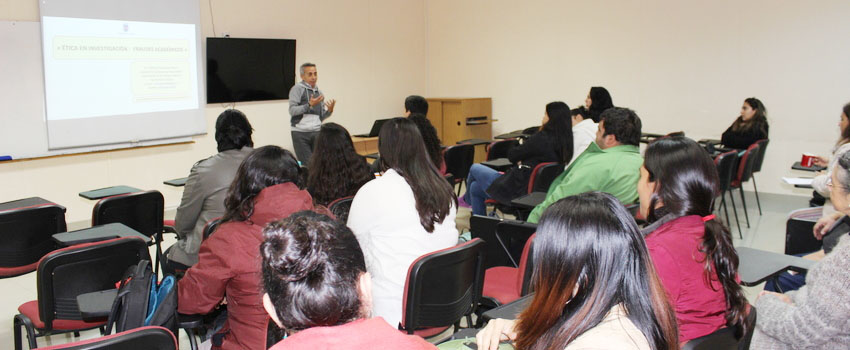
Students who attended the meeting pointed out that it would be essential to continue with this type of workshops, in order to face situations that allow them to put into practice what they are learning, further strengthening their professional capabilities.
In order to strengthen the professional skills of students who are pursuing postgraduate degrees in their different formats, the Postgraduate and Postgraduate Directorate of the ULS organized the seminar-workshop called “Scientific Ethics”, which seeks to inform and update knowledge regarding that topic, establishing it as a critical part of scientific research.
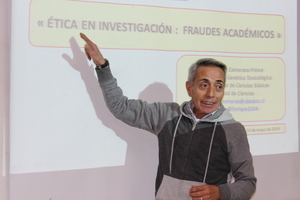 In this activity, which is part of a cycle of events aimed at postgraduate students, the need to be up to date with ethics and its implications for professional development was discussed, and for this reason, among the guests was the professional from the Department of Basic Sciences of the University of Bío Bío and expert in scientific research and academic fraud, Dr. Enrique Zamorano.
In this activity, which is part of a cycle of events aimed at postgraduate students, the need to be up to date with ethics and its implications for professional development was discussed, and for this reason, among the guests was the professional from the Department of Basic Sciences of the University of Bío Bío and expert in scientific research and academic fraud, Dr. Enrique Zamorano.
During the development of his intervention, he explained to those present the importance of having clear limits when carrying out an investigation, taking into account the scope of the studies and also the misuse of fraudulent publications that circulate thanks to “predatory” magazines. ”.
For Doctor Zamorano, the topic of bioethics in research is relatively new, in such a way that public institutions such as universities "are against time to achieve internal regulations that allow ethical work in different areas, to have a committee of bioethics, running quickly to try to achieve these objectives and so that our research meets a series of criteria of scientific rigor that allows it to be projected over time."
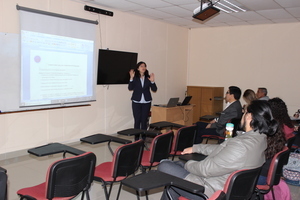 While in the practical workshop, academic Zamorano addressed topics aimed at seeking criticism of scientific ethics, and where participants had to analyze them and put themselves in the place to clarify situations. Likewise, he pointed out “predatory” journals that do not require peer review, or if they do, it is very poor. “There is a blacklist and we are going to show it,” said the academic.
While in the practical workshop, academic Zamorano addressed topics aimed at seeking criticism of scientific ethics, and where participants had to analyze them and put themselves in the place to clarify situations. Likewise, he pointed out “predatory” journals that do not require peer review, or if they do, it is very poor. “There is a blacklist and we are going to show it,” said the academic.
The Vice-Rector for Research and Postgraduate Studies, Dr. Eduardo Notte, was present during the day, and experts from different areas participated, including lawyer Elizabeth Escobar and Dr. Paola Salas, both members of the ULS Scientific Ethics Committee, and the Dr. José Valderrama, from the La Serena Technological Information Center, with the purpose of talking about scientific standards that help ensure the reliability of research results and the safety of research subjects.
The next meetings will be from the first week of June.
Written by Patricia Castro, DirCom

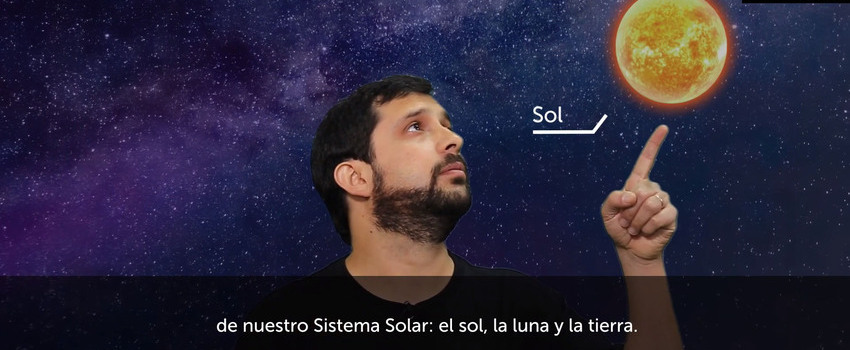
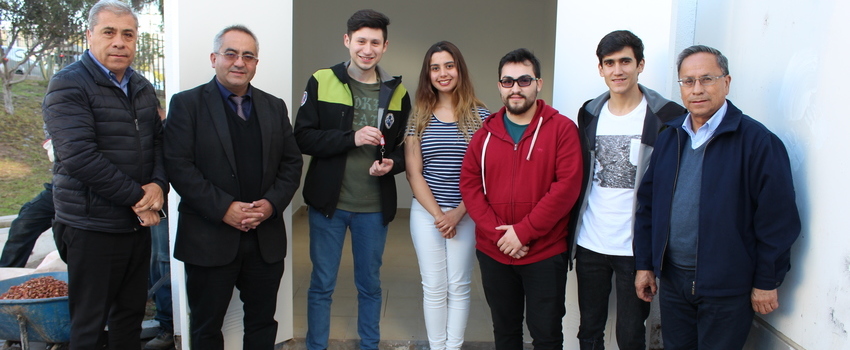
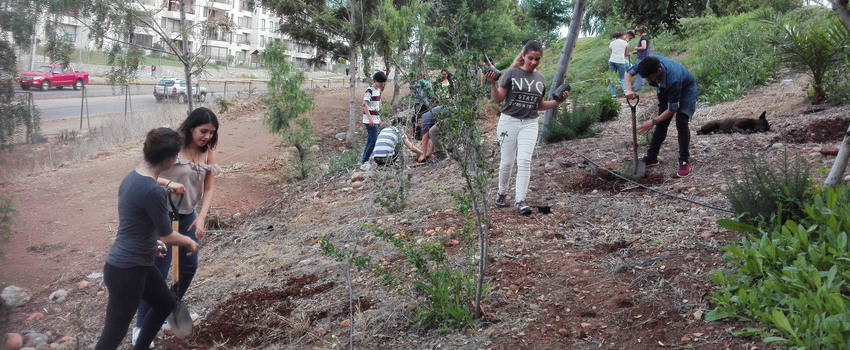
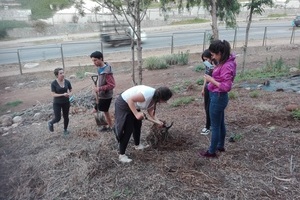 In this way, already in 2018, the first land clearing works were carried out in the sector surrounding the kindergarten, now advancing towards the sector adjacent to Avenida Raúl Bitrán to the sector of the pedestrian stairs of the campus.
In this way, already in 2018, the first land clearing works were carried out in the sector surrounding the kindergarten, now advancing towards the sector adjacent to Avenida Raúl Bitrán to the sector of the pedestrian stairs of the campus.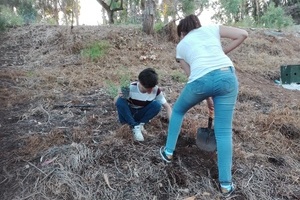 Dry vegetation is being removed and the land on the west slope of the campus is being prepared to begin reforestation. We seek to green and beautify this space on campus and help it become a green lung for the University and the city.
Dry vegetation is being removed and the land on the west slope of the campus is being prepared to begin reforestation. We seek to green and beautify this space on campus and help it become a green lung for the University and the city.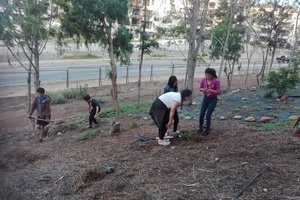 Indeed, during the second half of 2018, the eastern slope, adjacent to the ULS Children's Garden, was cleaned, removing all dry vegetation. Subsequently, an irrigation system was installed and then a planting of native trees was carried out, with the help of the Environmental Secretariat of the Federation of Students (FEULS).
Indeed, during the second half of 2018, the eastern slope, adjacent to the ULS Children's Garden, was cleaned, removing all dry vegetation. Subsequently, an irrigation system was installed and then a planting of native trees was carried out, with the help of the Environmental Secretariat of the Federation of Students (FEULS).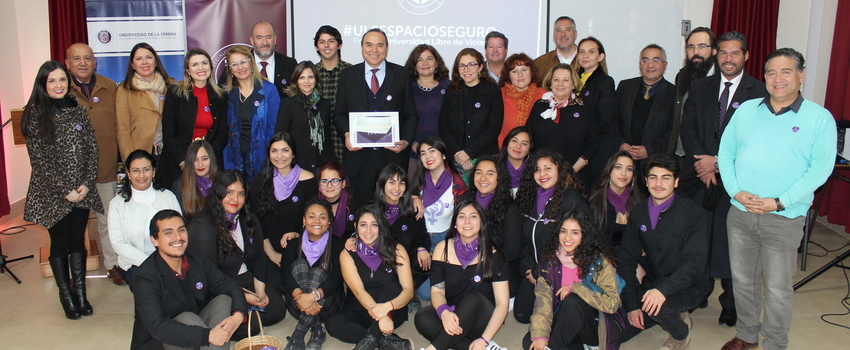
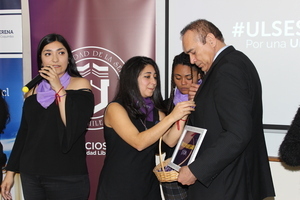 Several months of work culminated in the launch of this plan that seeks to enhance, accentuate and educate the university community in the new policies that aim to prevent harassment and arbitrary discrimination throughout the university community.
Several months of work culminated in the launch of this plan that seeks to enhance, accentuate and educate the university community in the new policies that aim to prevent harassment and arbitrary discrimination throughout the university community.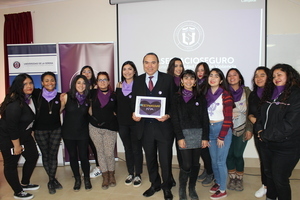 On the occasion, the President of the Honorable Board of Directors, Ernesto Velasco, emphasized that “this work is of vital importance since it is in the social sense of the University. Building a strategic alliance in each of the levels of the University is building a public policy and this allows us to build a culture that transcends time,” he stated.
On the occasion, the President of the Honorable Board of Directors, Ernesto Velasco, emphasized that “this work is of vital importance since it is in the social sense of the University. Building a strategic alliance in each of the levels of the University is building a public policy and this allows us to build a culture that transcends time,” he stated.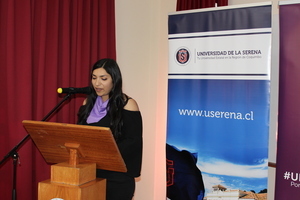 Company name modification
Company name modification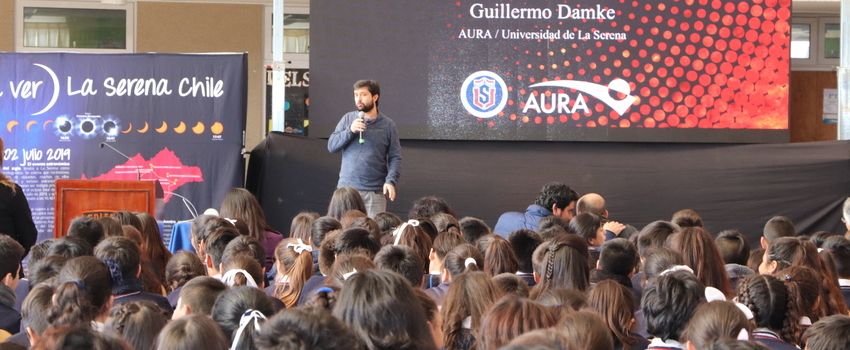
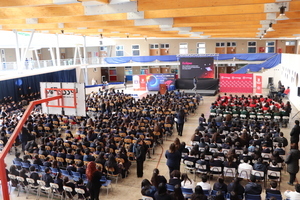 This activity is part of the collaborative work carried out by the school with the Municipality of La Serena and the Gabriel González Videla Municipal Corporation in order to educate the community about the total solar eclipse.
This activity is part of the collaborative work carried out by the school with the Municipality of La Serena and the Gabriel González Videla Municipal Corporation in order to educate the community about the total solar eclipse.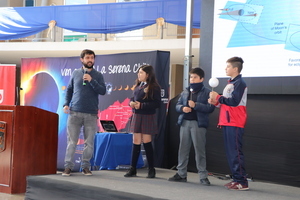 Alejandra Leyton, Coordinator of the ULS Scientific Dissemination Team, indicated that “this has been the most massive and important talk we have held and we have had a very good reception from the boys and girls, who appreciate being able to access this type of information.” activities".
Alejandra Leyton, Coordinator of the ULS Scientific Dissemination Team, indicated that “this has been the most massive and important talk we have held and we have had a very good reception from the boys and girls, who appreciate being able to access this type of information.” activities".